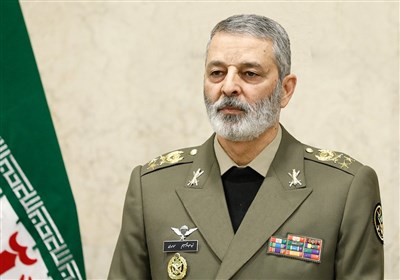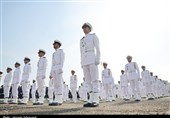Minister: Iran Supports Joint Initiatives to Combat Narcotic Trafficking
TEHRAN (Tasnim) – Iran believes in close cooperation with the UN and regional organizations in the fight against narcotic drugs and is ready to help Afghan farmers switch to alternative crops, the head of Iran's anti-drug center said in a meeting with a UN official on Wednesday.
Interior Minister Abdolreza Rahmani Fazli, who is also head of the country's anti-drugs headquarters, met the administrator of the United Nations Development Programme (UNDP), Elizabeth Helen Clark, and told her of Iran's close cooperation with the International Narcotics Control Board (INCB) and the regional field office of UNODC in the framework of international conventions.
He added that Tehran has had good cooperation regarding the trilateral initiative with Afghanistan and Pakistan, and helped set up a joint programming center (JPC) to lead simultaneous, joint operations.
Opium production in Afghanistan rose in 2013, a phenomenon the UNODC says is due in part to the lack of agricultural assistance to Afghan farmers.
Rahmani Fazli expressed concern over the rise in production of opiates in neighboring Afghanistan, saying Iran is prepared to help with alternative crops as a way to wean farmers off poppy cultivation and called on international organizations to pitch in with aid and initiatives to "rid the Afghan people of such a plague."
The UN official, too, for her part said in the meeting that the UN is well aware of the heavy costs narcotics in Afghanistan have incurred on Iran, and hailed the effective and remarkable efforts by Iran to combat drug trafficking and its programs to treat addicts and prevent addiction.
The UNDP official said, “Afghanistan’s problem cannot be solved easily, because of such obstacles as lack of security, war, and rampant illiteracy there, but efforts need to be made.”
The United Nations has estimated in the past that opium trafficking accounts for up 15 percent of Afghanistan’s gross domestic product, but the figure is expected to rise as international military and development spending declines with the NATO withdrawal at the end of 2014.
Iran is on a major transit route for drugs being smuggled from Afghanistan to Europe, the Middle East and Africa, and the country's war on drug-traffickers has claimed the lives of nearly 4,000 Iranian police forces over the past 34 years.
According to the UN Office on Drugs and Crime, Iran is netting eight times more opium and three times more heroin than all other countries in the world combined.
A common complaint from Afghan farmers is that traditional crops, grown legally, do not bring them enough money, and that in the absence of irrigation systems and canals in a country with erratic weather conditions and widesperad draught, poppy fares much better than water-intensive crops such as cotton or fruits.
The farmers cannot cultivate wheat, maize or cotton without a sufficient water supply.
The Afghan government, with the help of some donor countries, has initiated opium eradication programs, but many farmers say promises to provide high-quality seeds and fertilizer, carry out developmental projects and promote alternative careers have not been kept.





